Open-Access Textbooks
The following textbooks are available on this site or on other Web sites for use by student writers. To list additional textbooks on this page, please contact Mike Palmquist at Mike.Palmquist@ColoState.edu.
Textbooks
 Rethinking Your Writing: Rhetoric for Reflective Writers
Rethinking Your Writing: Rhetoric for Reflective Writers
By E. Shelley Reid
A comprehensive, flexibly designed textbook that draws on recent research about threshold concepts and reflective practice, Rethinking Your Writing offers a transfer-focused approach that emphasizes students’ repeated practice in identifying their own writing challenges and strategies. This open-access textbook presents the learning of writing as a situated, rhetorical, recursive process of problems wrestled with and decisions made—starting from conceptual decisions such as identifying audience and content needs to late-stage choices during drafting, revision, editing, and polishing. ... View this textbook ....
 Try This: Research Methods for Writers
Try This: Research Methods for Writers
by Jennifer Clary-Lemon, Derek Mueller, and Kate Pantelides
Try This explores interdisciplinary research methods employed in research in writing studies but rarely drawn upon in undergraduate courses. This shifts writing instruction from a model of knowledge delivery and solitary research to a pedagogy of knowledge-making and an acknowledgment of research writing as collective, overlapping, and distributed. Each chapter is organized around methods to approach a particular kind of primary data—texts, artifacts, places, and images. View this textbook ....
 The Informed Writer: Using Sources in the Disciplines
The Informed Writer: Using Sources in the Disciplines
by Charles Bazerman
The Informed Writer, offered here in its fifth edition, addresses a wide range of writing activites and genres, from summarizing and responding to sources to writing the research paper and writing about literature. The book has been adapted by Mark Haas for presentation on this site. View this textbook ....
 Involved: Writing for College, Writing for Your Self
Involved: Writing for College, Writing for Your Self
by Charles Bazerman
Involved: Writing for College, Writing for Your Self helps students to understand their college experience as a way of advancing their own personal concerns and to draw substance from their reading and writing assignments. This edition of the book has been adapted from the print edition, published in 1997 by Houghton Mifflin. Copyrighted materials—primarily images and examples within the text—have been removed from this edition. View this textbook ....
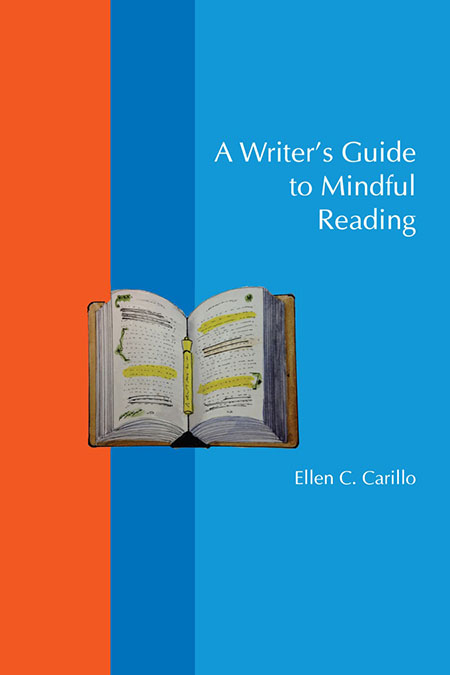 A Writer's Guide to Mindful Reading
A Writer's Guide to Mindful Reading
By Ellen C. Carillo
The reading selections, assignments, and activities in this innovative textbook move students toward become more reflective, deliberate, and mindful readers and writers by providing opportunities to apply and reflect on multiple ways of reading and writing. Because many of the difficulties that students encounter when writing are related to the difficulties posed by reading complex texts, A Writer's Guide to Mindful Reading gives instructors the tools to help students develop a repertoire of reading strategies that will help them become stronger readers and—by extension—stronger writers. View this textbook ....
 Writing Spaces: Readings on Writing, Volume 1
Writing Spaces: Readings on Writing, Volume 1
Edited by Charlie Lowe and Pavel Zemliansky
The books in this series, published jointly by the WAC Clearinghouse and Parlor Press, present peer-reviewed collections of essays—all composed by teachers for students—with each volume freely available for download under a Creative Commons license. The Writing Spaces mission is to build a library of quality open access texts for the writing classroom as an alternative to costly textbooks. Each series collection will contain engaging essays from different writing teachers in the field and will explore important topics about writing in a manner and style accessible both to teachers and students. View this textbook ....
 Writing Spaces: Readings on Writing, Volume 2
Writing Spaces: Readings on Writing, Volume 2
Edited by Charlie Lowe and Pavel Zemliansky
The second volume in the Writing Spaces series addresses topics including the rhetorical situation, collaboration, documentation styles, weblogs, invention, writing assignment interpretation, reading critically, information literacy, ethnography, interviewing, argument, document design, and source integration. View this textbook ....
 Writing Spaces: Readings on Writing, Volume 3
Writing Spaces: Readings on Writing, Volume 3
Edited by Dana Driscoll, Mary Stewart and Matthew Vetter
The third volume of the Writing Spaces series continues the tradition of the first two books with topics such as voice and style in writing, rhetorical appeals, discourse communities, multimodal composing, visual rhetoric, credibility, exigency, working with personal experience in academic writing, globalized writing and rhetoric, constructing scholarly ethos, imitation and style, and rhetorical punctuation. View this textbook ....
 Writing Spaces: Readings on Writing, Volume 4
Writing Spaces: Readings on Writing, Volume 4
Edited by Dana Driscoll, Megan Heise, Mary Stewart, and Matthew Vetter
The fourth volume of the Writing Spaces series continues the tradition of the first two books with topics diverse topics such as place-based research, source credibility, technologies of trust, equitable language practices, social media, accessibility, feedback, racial literacy, research communities, privacy and digital technologies, navigating social contexts, writing workflows, transfer, grading, genre, writing for social change, and more. View this textbook ....
 Writing Spaces: Readings on Writing, Volume 5
Writing Spaces: Readings on Writing, Volume 5
Edited by Trace Daniels-Lerberg, Dana Driscoll, Mary K. Stewart, and Matthew Vetter
Writing Spaces: Readings on Writing, Volume 5, is a collection of Creative Commons licensed essays for use in the first year writing classroom, all written by writing teachers for students. This volume continues the tradition of previous volumes with diverse topics such as advanced rhetoric, translanguaging and code-meshing practices, revision workflows, environmental justice, social annotation, Wikipedia, plagiarism, accessibility, data analysis, writing knowledge transfer, and more. Teaching strategies and discussion questions follow each chapter. View this textbook ....
 Technical Writing Spaces: Readings on Writing, Volume 6
Technical Writing Spaces: Readings on Writing, Volume 6
Edited by Kirk St.Amant and Pavel Zemliansky
The sixth volume of the Writing Spaces series explores writing in technical and professional communication. Like earlier books in the series, it continues the tradition of covering a wide range of topics about writing. In each chapter, authors present their unique views, insights, and strategies for writing by addressing the undergraduate reader directly. Drawing on their own experiences, these teachers-as-writers invite students to join in the larger conversation about the craft of technical and professional writing. ... View this textbook ....
 The English Language: From Sound to Sense
The English Language: From Sound to Sense
By Gerald P. Delahunty and James J. Garvey
Grounded in linguistic research and argumentation, The English Language: From Sound to Sense is written to help readers become independent language analysts capable of critically evaluating claims about the language and the people who use it. Written in a clear style, it guides its readers on topics including basic assumptions about language and discourse, pronunciation, word-formation strategies, parts of speech, clause elements and patterns, how clauses may be combined into sentences, and how clauses and sentences are modified to suit speakers' and writers' discourse purposes. ... View this textbook ..../a>
Writing Textbooks Available Elsewhere on the Web
Thanks to Andrea Olinger for her help in creating this list of open-access textbooks.
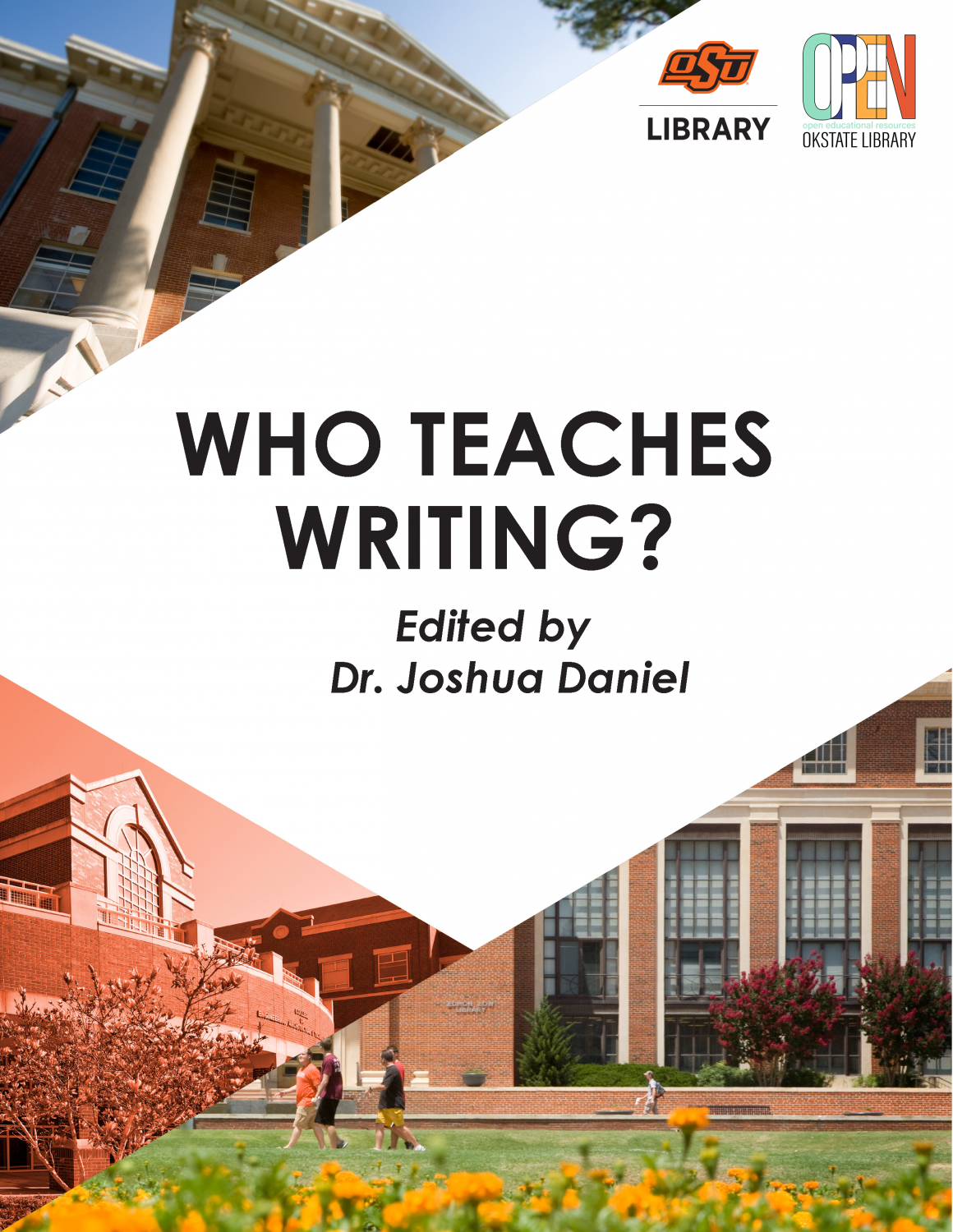 Who Teaches Writing?
Who Teaches Writing?
By Tyler Branson, Ron Brooks, Dana Cadman, Heidi Cephus, and several other colleagues
Who Teaches Writing? is an open teaching and learning resource being used in English Composition classes at Oklahoma State University. It was authored by contributors from Oklahoma State University and also includes invited chapters from faculty and staff at institutions both inside and outside of Oklahoma. Contributors include faculty from various departments, contingent faculty and staff, and graduate instructors. One purpose of the resource is to provide short, relatively jargon-free chapters geared toward undergraduate students taking first-year composition. View this textbook ....
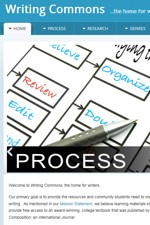 Writing Commons ... The Home For Writers
Writing Commons ... The Home For Writers
By Joe Moxley
Writing Commons offers the resources and community students need to improve their writing, particularly students enrolled in courses that require college-level writing. The author and editorial board members of this project believe learning materials should be free for all students and teachers—part of the cultural commons. Hence, free access is being provided to an award-winning, college textbook that was published by a major publisher and awarded the Distinguished Book Award by Computers and Composition: an International Journal. View this textbook ....
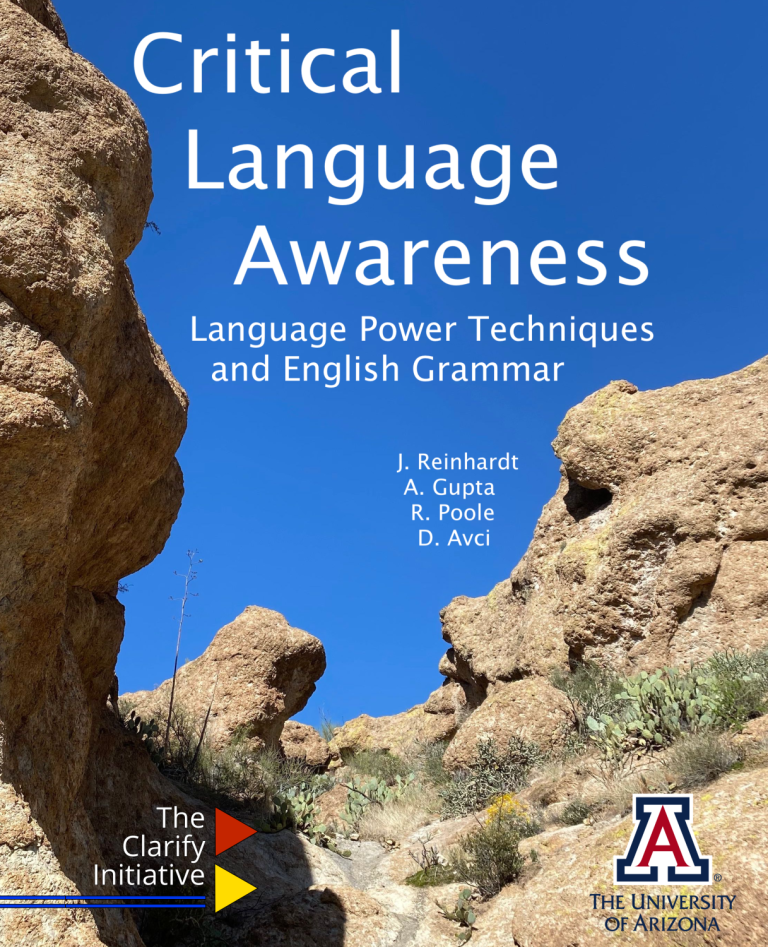 Critical Language Awareness: Language Power Techniques and English Grammar
Critical Language Awareness: Language Power Techniques and English Grammar
By Jonathon Reinhardt, Anuj Gupta, Robert Poole, and Dilara Avci
Critical Language Awareness: Language Power Techniques and English Grammar is a guide to language power techniques and associated grammar. It can be used in language arts, grammar, rhetoric, and English instruction at the high school, community college, and university levels as well as by private individuals and groups. This textbook focuses on comprehending and analyzing language like a critical discourse analyst. It provides sixteen modules: eight language power techniques (LPTs) corresponding to eight grammar features (GFs), each of which typifies, but is not restricted to, that technique. View this textbook ....
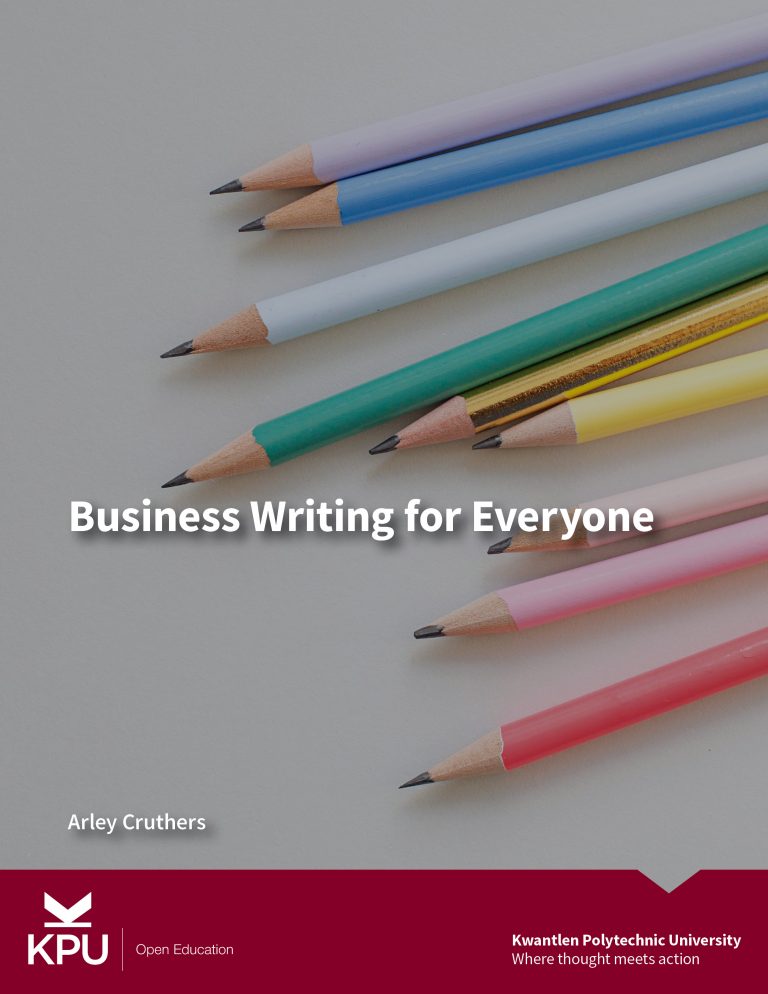 Business Writing For Everyone
Business Writing For Everyone
By Arley Cruthers
Business Writing For Everyone is an inclusive guide to writing in the workplace. The book takes a process-oriented, storytelling approach to composition: focusing less on genre and more on the decisions that effective business communicators make. The book also contains interactive H5P activities for students to test their learning, and activities for further reflection that instructors can use in the classroom or assign as homework. View this textbook ....
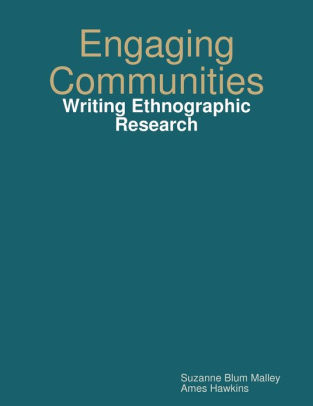 Engaging Communities: Writing Ethnographic Research
Engaging Communities: Writing Ethnographic Research
By Suzanne Blum Malley and Ames Hawkins
This book has been designed to help students envision interesting, hands-on research projects that are eventually converted—translated—into written text. The authors observe that ethnographic writing offers a means to engage writers, and that "ethnographic research allows students to access what can seem so terribly difficult when framed in other assignments: to pursue a line of inquiry rather than a topic, to research ethically, and to write with authority." View this textbook ....
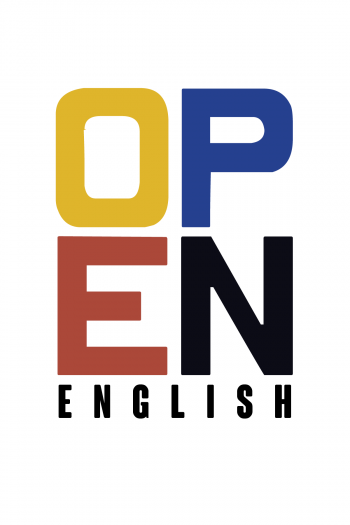 Open English @ SLCC: Texts on Writing, Language, and Literacy
Open English @ SLCC: Texts on Writing, Language, and Literacy
By SLCC English Department
Open English @ SLCC originated from a shared desire to offer affordable, responsive, accessible instructional resources for students enrolled in composition courses at SLCC. This Pressbook is one part of the Open English project. It works as a local venue for faculty, students, and other members of the SLCC community to circulate ideas about and discuss writing in their lives. View this textbook ....
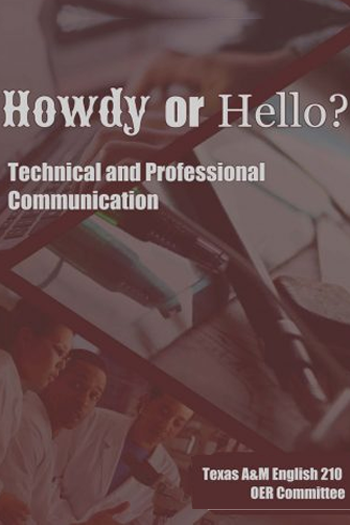 Howdy or Hello? Technical and Professional Communication
Howdy or Hello? Technical and Professional Communication
By Matt McKinney, Kalani Pattison, Sarah LeMire, Kathy Anders, and Nicole Hagstrom-Schmidt
Howdy or Hello? offers an introduction to technical and professional communication. It works from larger issues, including the rhetorical situaation, through composing processes, to writing specific genres. View this textbook ....
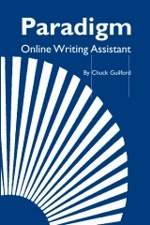 Paradigm Online Writing Assistant
Paradigm Online Writing Assistant
By Chuck Guilford
Paradigm Online Writing Assistant is a distillation and collage of the author's numerous writings, talks, and activities that he has developed over the years and tried out on students, colleagues, and mentors with varying degrees of success. This comprehensive site has long been a source of advice to aspiring writers. View this textbook ....
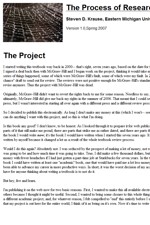 The Process of Research Writing
The Process of Research Writing
By Steve Krause
The Process of Research Writing is a web-based research writing textbook written for teachers and students in research oriented composition and rhetoric classes. View this textbook ....
 Open Technical Communication
Open Technical Communication
By Tamara Powell, Jonathan Arnett, Monique Logan, Cassandra Race, Tiffani Reardon, Lance Linimon, James Monroe, and Megan MacDonald
The authors write, "Sexy technical writing . . . we’ve got to be kidding, right? But no, we aren't. Good technical writing is powerful and clear and gets the job done. It brings people together and solves problems. Good technical writing purrs and hums like that BMW you plan to be driving someday. What’s not sexy about that? On the other hand, poor technical writing skills may lead to a lifetime of asking people if they want fries with that . . . or worse, selling vacuum cleaners door to door. There’s no need to ask what’s not sexy about that!". View this textbook ....
 Write Like a Scientist: A Guide to Scientific Communication
Write Like a Scientist: A Guide to Scientific Communication
By Molly Costanza-Robinson, Alison Maxwell, and Colleagues
Write Like a Scientist is a resource for scientific writers at all stages of training and experience. As with any writing instruction, this book can only provide guidelines for effective writing. The considerations, patterns, and tools presented in this book will take you a long way, but the best writing will never be about adhering to a strict formula. View this textbook ....
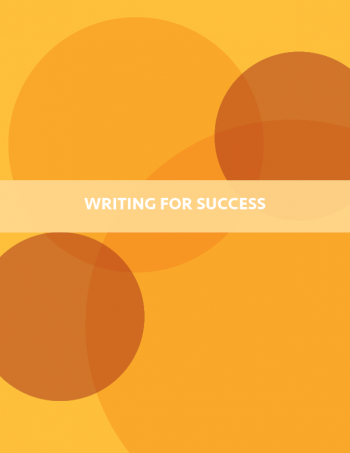 Writing for Success
Writing for Success
Writing for Success is a text that provides instruction in steps, builds writing, reading, and critical thinking, and combines comprehensive grammar review with an introduction to paragraph writing and composition. View this textbook ....
Other Textbooks Available Elsewhere on the Web
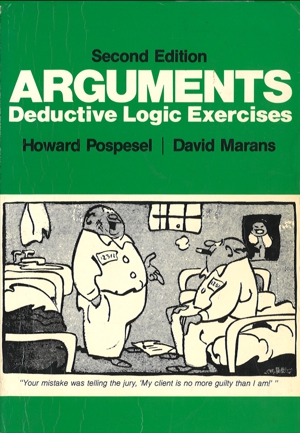 Arguments: Deductive Logic Exercises
Arguments: Deductive Logic Exercises
By Howard Pospesel and David Marans
Arguments: Deductive Logic Exercises, published in 1978 and available through the Philosophy Department at UC Davis, can be used with any system of proofs for first-order predicate logic: truth trees, Fitch-style natural deductions, and so on. View this textbook ....
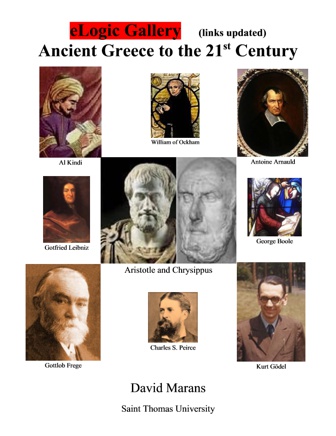 Logic Gallery: Aristotle to the Present, E-edition
Logic Gallery: Aristotle to the Present, E-edition
By David Marans
Logic Gallery: Aristotle to the Present, E-edition, offers "an enhanced chronology of the history of an idea—logic." View this textbook ....
